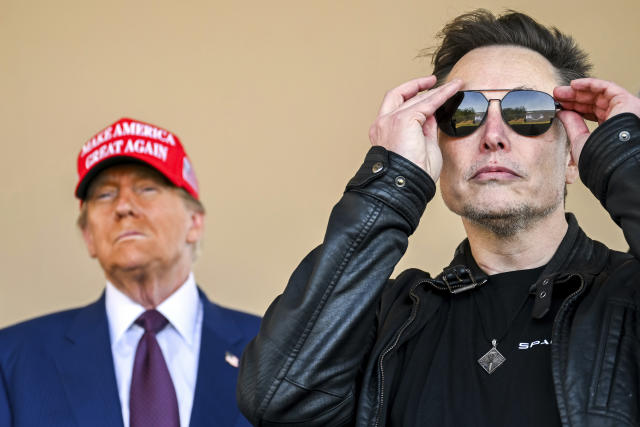
President Trump's latest executive order requires government agencies to reduce bureaucracy, cut non essential departments, and limit project funding support, which could lead to the disappearance of the Treasury Department's Community Development Financial Institutions Fund (CDFI Fund). As a key financing channel to support low-income groups, CDFI Fund helps non-profit organizations provide low interest loans for projects such as small businesses and supermarkets in food deserts. If the funding is terminated, many similar community development projects will be unsustainable and may affect private banks' investment confidence in the field. This executive order has sparked widespread concerns, with critics arguing that it is not only a blow to small businesses, but also a threat to the economic stability of impoverished communities.
The Trump administration's policy focus is on reducing government intervention and cutting redundant spending, and this executive order is a continuation of this philosophy. However, CDFI Fund is not just an ordinary 'bureaucratic redundancy', but a community financial support system that has been proven effective over the past few decades. Its core goal is to fill the market failure, that is, to fill the loan gap that traditional banks avoid due to insufficient risk or profit, and to help low-income communities obtain credit.
For example, institutions like Finanta rely on funding from the CDFI Fund to provide healthy food financing for the food desert region of North Philadelphia, supporting the development of basic livelihood projects such as grocery stores. If funding is reduced, similar projects may not be able to continue. In addition, CDFI Fund also provides new market tax credits to attract private capital into low-income communities and create development opportunities for groups that have long been overlooked by the financial system.
But now, due to the uncertainty of federal funding, the investment willingness of private banks is also affected, which may exacerbate the trend of capital flowing to affluent areas rather than impoverished communities. This not only weakens the foundation of community development, but may also lead to a more severe wealth gap.
The logic of the Trump administration is to reduce government led economic intervention and allow the market to regulate freely. However, in economic reality, the market often tends to pursue high returns, and low-income communities find it difficult to obtain sufficient credit support. The role of CDFI Fund is to ensure that these funds flow to groups that are overlooked by the market. If the fund is terminated, impoverished communities will become more reliant on private banks, which in turn need profit drivers, which may lead to increased credit costs or direct supply cuts.
From historical experience, the existence of community development financial institutions has significantly increased entrepreneurial opportunities for low-income populations. For example, the successful expansion of Juniata Supermarket not only meets the basic needs of local residents, but also creates employment opportunities. If this funding support decreases, similar community businesses may find it difficult to replicate, ultimately leading to a stagnation in the development of low-income communities.
Another noteworthy impact is the impact of policy uncertainty on the investment environment. The CDFI Fund has been supported by both parties in the past, and the funding was approved by Congress in 2023. However, Trump's executive order may change this situation, raising doubts among non-profit organizations and investors about future funding support.
This uncertainty may lead to more cautious private capital, affecting the flow of funds into low-income communities. For example, private banks often rely on the certification of non-profit organizations to determine donation funds, and if the federal certification system of these institutions is weakened, banks may be unwilling to continue providing funds. The CEOs of CDFI Fund have stated that investor uncertainty is intensifying, leading to greater risks for the community financing ecosystem.

Driven by the Trump administration's push to relax financial regulations and the recovery of investment banking business, the market value of the six major banks in the United States has cumulatively increased by approximately 600 billion US dollars by 2025.
Driven by the Trump administration's push to relax financia…
On Christmas evening, U.S. President Trump posted on social…
According to multiple foreign media reports, the recent fin…
The middle class, once regarded as the cornerstone of Ameri…
On December 19th local time, the US military launched a lar…
The Boxing Day sunshine should have cast a false glow of pr…